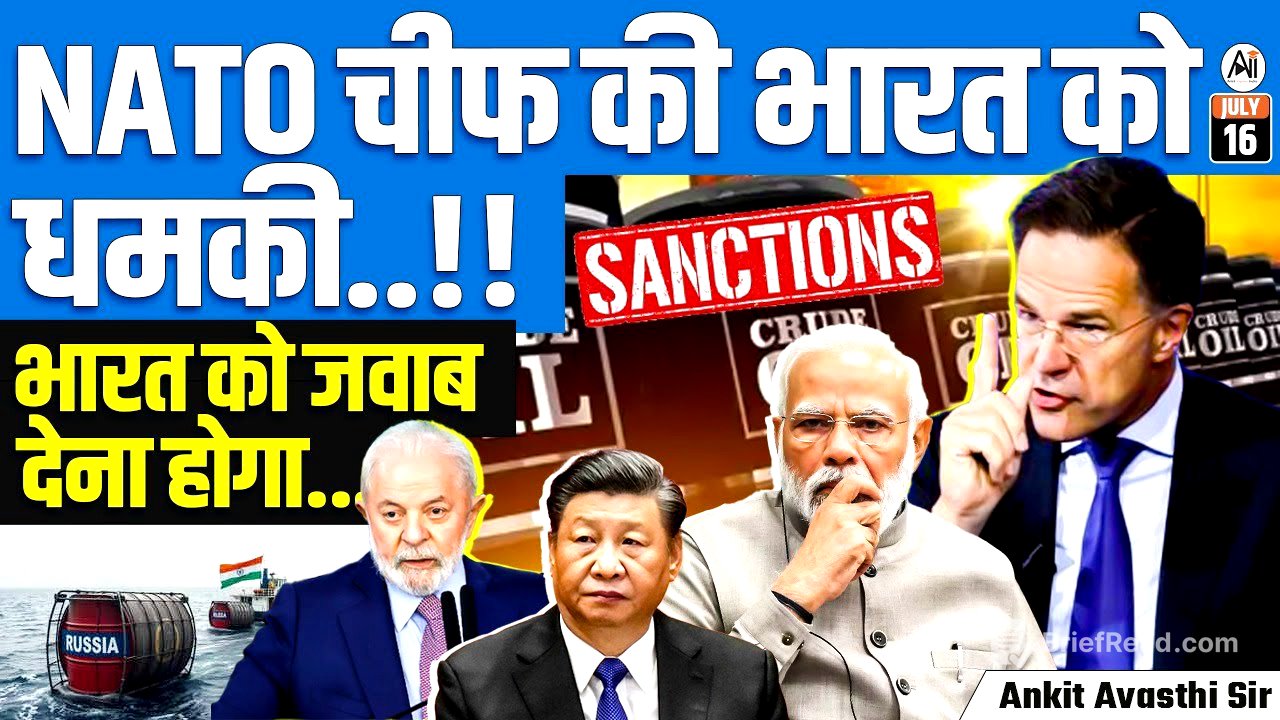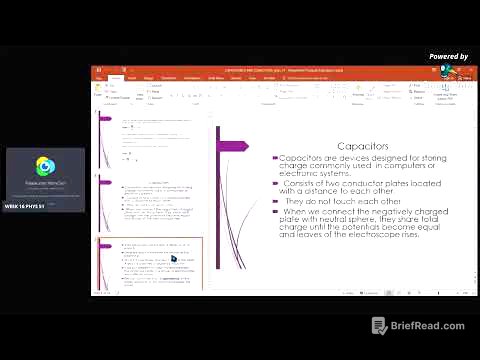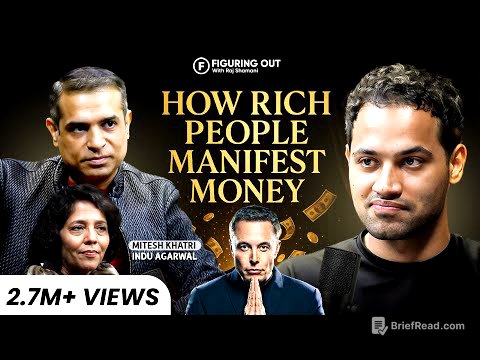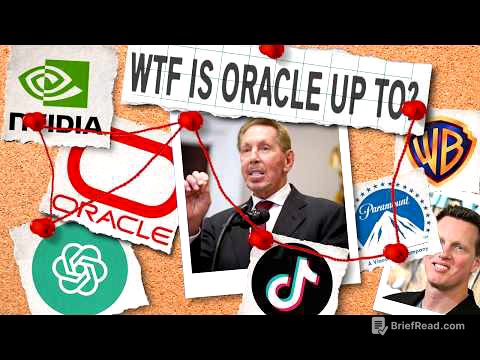TLDR;
This video discusses the recent threats made by the NATO chief towards India, China, and Brazil regarding their trade relations with Russia. It explores the historical context of NATO, its relationship with the US, and the implications of these threats on global politics and trade. The video also touches upon the role of BRICS countries, the use of tariffs as a weapon, and the internal conflicts within NATO.
- NATO chief's threats to India, China, and Brazil over Russia trade.
- Historical context of NATO and its purpose.
- Implications of tariffs and sanctions on global trade.
- The role and challenges of BRICS nations.
Introduction [0:00]
The video introduces Mark Rutte, the NATO Chief, and discusses the organization's origins, created by the US to counter Soviet Russia. With the Soviet Union's collapse, NATO's purpose is questioned, yet it persists as a tool for American dominance. Rutte's recent threats to India, Brazil, and China, warning of tariffs for trading with Russia, mark the first time NATO has threatened non-member countries.
NATO's Threat to the Global South [1:57]
The speaker highlights the significance of NATO's threats to India, China, and Brazil, countries within the Global South. This action is viewed as developed nations collectively threatening the Global South, which should not be tolerated. The NATO chief's warning of secondary sanctions if these countries don't force Russia to surrender raises concerns about India's response, especially after Trump's previous interventions.
NATO's Origins and Purpose [7:20]
Following World War II, the world divided into capitalist (led by the USA) and communist (led by Soviet Russia) factions. America formed NATO (North Atlantic Treaty Organization) to unite countries against Soviet Russia. After the Soviet Union's collapse in 1991, NATO's original purpose ended, but America continued using it to increase its global dominance. Article 5 of NATO states that an attack on any member is an attack on all, ensuring mutual political and military support.
Ukraine and NATO [8:59]
Ukraine's desire to join NATO stemmed from fears of Russian aggression, seeking protection under Article 5. Putin preempted this by taking action against Ukraine before it could join NATO, preventing its membership. Despite not being a NATO member, Ukraine is suffering the consequences, with NATO countries secretly providing assistance.
Trump's Influence on NATO [10:00]
Trump pressured NATO members to contribute 5% of their GDP to NATO funds, threatening to withdraw US security guarantees if they didn't comply. By securing these funds, the US, under Trump, aimed to use NATO for its own strategic purposes, potentially involving it in conflicts. The speaker questions whether NATO will impose sanctions on India and China or if Rutte is merely echoing Trump's sentiments.
Mark Rutte's Relationship with Trump [12:01]
Mark Rutte, formerly the Prime Minister of the Netherlands, had a past encounter with Trump in 2018 where he was perceived as blunt. After becoming NATO chief, Rutte adopted a more flattering tone towards Trump, even referring to him as "daddy" to gain favor and avoid potential repercussions. Trump is using Rutte to indirectly pressure Putin, leveraging India's strengthened relations with Russia.
BRICS and American Influence [14:32]
Trump has expressed concerns that the BRICS countries (Brazil, Russia, India, China, and South Africa) are developing anti-American sentiments. He has threatened Brazil, China, and India within BRICS, aiming to undermine support for Russia. The US is actively trying to trouble these nations, which are emerging as leaders of the Global South, challenging the established world order.
India's Oil Trade with Russia [16:17]
India's oil purchases from Russia have benefited both itself and the world by helping control global oil prices. By importing cheaper oil, India has mitigated the impact of increased demand on the market. Despite this, the G7 countries have imposed a price cap on Russian oil, but the US and European Union have indirectly benefited from India's refined Russian oil purchases.
Secondary Sanctions and Double Standards [17:58]
The US is imposing secondary sanctions, threatening countries that continue to trade with Russia. The NATO chief has echoed this, warning of up to 100% sanctions on India, China, and Brazil. The speaker points out the hypocrisy, as the European Union remains a top buyer of Russian LNG, and the US still purchases enriched uranium from Russia.
China's Response and India's Stance [23:40]
China has responded to the NATO chief's statement by calling it unnecessary and emphasizing dialogue and negotiation as the solution to the Ukraine crisis. China's past actions, such as halting the export of rare earth magnets, have demonstrated its ability to bring America to its knees. The speaker urges India to openly oppose such statements to protect its national honor and self-respect.
Conclusion [24:49]
The video concludes by encouraging viewers to share their opinions on the topic. It also promotes courses on History, Geography, Polity, Economy from NCERT.









